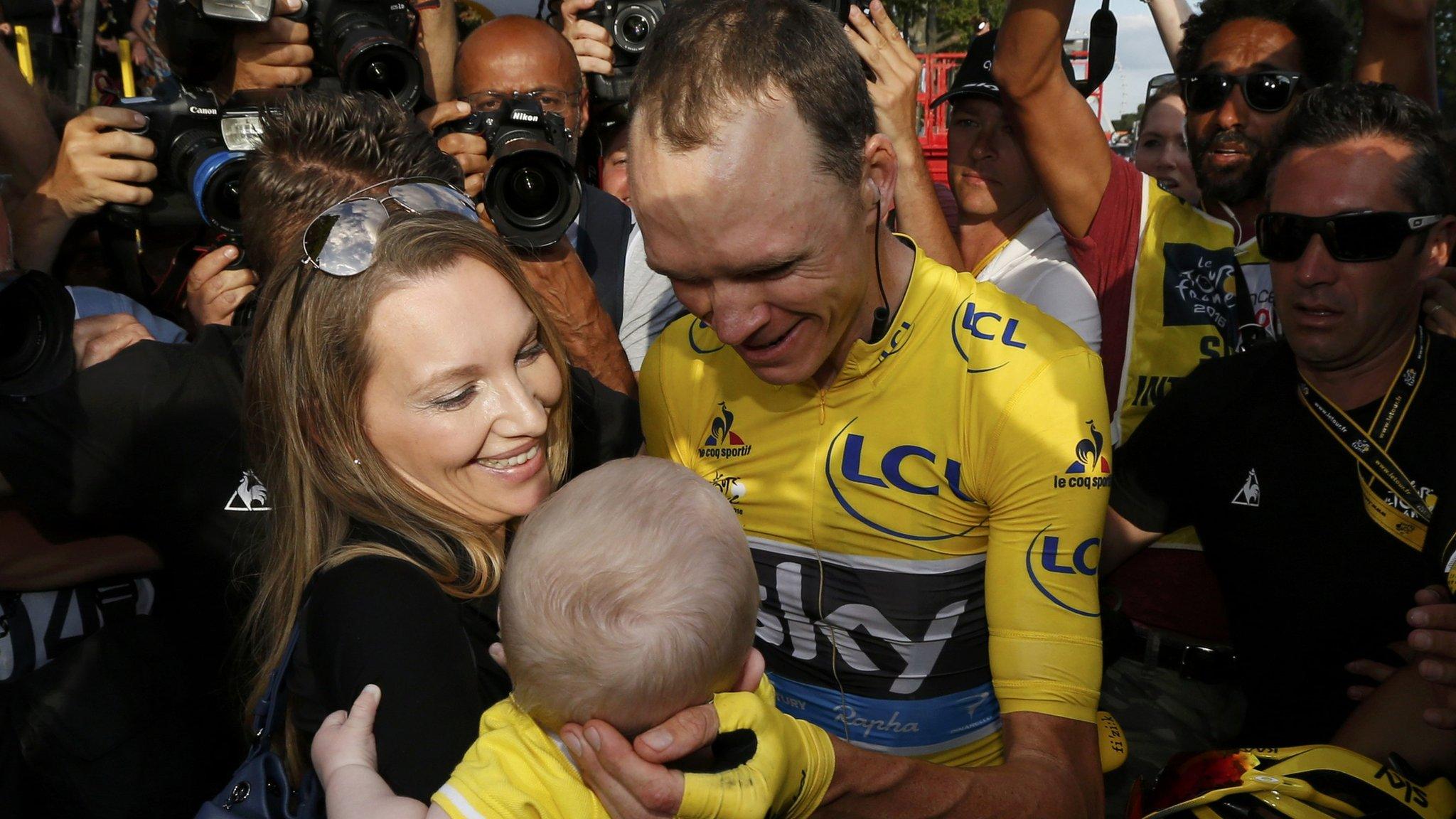'World sport - and the fight to ensure it is clean - is approaching a decisive moment'
- Published
What have we learned from the Fancy Bears leaks?
Rio's momentous Games may finally be over, but there seems no end in sight to sport's great drugs scandal. The hacking of the World Anti-Doping Agency's computer system is just the latest twist in a saga that by now truly takes some believing.
First we were told that, rather than protect clean athletes, those at the very top of athletics covered up doping, and allegedly even extorted money from cheating Russians.
Then - as if that was not enough - we learned the head of a Russian drugs lab subverted the entire Olympic testing process by secretly switching sample bottles through a hole in the wall at night.
Days before the Rio Olympics began, credulity was once again stretched, when, despite years of state-sponsored doping, and the IOC's stated zero-tolerance policy towards cheating, Russia were allowed to compete. They finished fourth in the medal table.
Many were equally amazed when the International Paralympic Committee then broke ranks by excluding the sporting superpower from the Paralympic Games.
And now, to cap it off, we have the so-called Fancy Bears - the world of sport reeling as the suspected Russian cyber-espionage group continue to release athletes' confidential medical records.
At a historically crucial time for the anti-doping movement, the ramifications are being felt by sport's most important institutions, as well as some of its biggest stars.
The leak has been widely condemned by the anti-doping community, and is obviously upsetting for the growing number of athletes whose private medical details are being cast into the public domain.
But, despite the countless inspirational moments Rio provided this summer, trust in sport is wearing thin, and the hack has at least contributed towards a legitimate debate surrounding therapeutic use exemptions (TUEs).
Last week, the man whose damning report into Russian cheating is thought to have provoked the hack, Professor Richard McLaren, told the BBC he was concerned the system could be open to abuse.
So is it time TUEs were banned, with unfit or unwell athletes simply told to stay away from competition?
Supporters of the current system point out that athletes - like any of us - can get ill or injured, and TUEs are merely a sensible means of being allowed appropriate treatment.
Why, as asthmatic British hockey star Sam Quek has argued, should an athlete be prevented from competing because they are are not allowed to receive the kind of medication anyone else would have access to?
Samantha Quek: "The public are being led down a road that TUEs are associated with being a cheat or almost dirty"
Anti-doping agencies and sports federations insist the system to check applications for TUEs is robust, with a panel of experts assessing the diagnosis of a medic before a TUE is approved, and then Wada itself able to review each case.
However, a spotlight is now being shone on the system's grey areas. In last year's Cycling Independent Reform Commission report, one rider said as many as 90% of TUEs were used for performance-enhancing purposes.
The US Anti-Doping Agency continues to investigate the alleged misuse of TUEs by the American running coach Alberto Salazar following a BBC Panorama documentary last year, although he denies any wrongdoing.
There have been concerns about the proportion of players in baseball, for example, who say they need prescription stimulants to treat ADHD. Or the amount of swimmers who suffer from asthma and need inhalers.
And both Sir Bradley Wiggins and Team Sky continue to face questions over the timing of three TUEs the cyclist received for the powerful corticosteroid triamcinolone to treat asthma and allergies just days before major races.
Wiggins wrote in his book that he had never received injections, though his spokesman has explained he was merely referring to intravenous jabs, and denied any involvement by Sky's former consultant, and disgraced doctor, Geert Leinders, since banned for life for various doping violations.
There is no suggestion Sky, Wiggins, or indeed any of the athletes named in the leaks, have done anything wrong, but at a time when sport needs to regain trust, this is the last thing it needed.
Some medical experts believe the system should be more rigorous. So if, for example, an athlete seeks permission to use a banned corticosteroid in competition, they should be required to have blood tests or an MRI scan, to make absolutely sure their symptoms are beyond any doubt, and there is no alternative treatment.
Or that the panel of experts should independently examine the athlete themselves, rather than relying on the application notes of a single doctor. That, they believe, would instantly cut down the number of TUEs being applied for.
Others believe more transparency is the answer, suggesting athletes tick a box on their applications if they are happy for their TUEs to be published, or even that all TUEs are made public.
But, as Siobhan-Marie O'Connor has pointed out, many athletes will want their medical details to remain private. The swimmer told the Daily Mail, external she was "devastated" when her ulcerative colitis was exposed by the hackers.
Many observers, however, believe this is all missing the point, and the debate about TUE transparency is a symptom of a much wider crisis; the erosion of faith in the entire anti-doping system.
How, they ask, can those responsible for clean sport be trusted any longer, when it took whistleblowers and the media to expose the scale of Russian cheating, years after the World Anti-Doping Agency (Wada) had first been alerted? When one of those whistleblowers - Yuliya Stepanova - was barred from competing in Rio, despite all she had done to expose the fraud.
When Wada has no real powers to actually sanction countries that flout its rules. When for years its chairman has also been a vice-president of the International Olympic Committee (IOC). When the financial and investigative resources at its disposal are so limited.
When its computer system is infiltrated by hackers, leaving athletes wondering whether they can rely on its security any more.
When the IOC - which provides half of Wada's funding and half of its board members - so aggressively defied the agency's recommendation to issue Russia with a blanket ban from the Olympics.
When, despite everything, Russia was still recently awarded the right to host the 2021 World Biathlon Championships.
When Brazilian police say they want to question IOC president Thomas Bach (albeit as a witness not a suspect) over an alleged ticket scam. And when remarkable world records are set in Rio by athletes who have dedicated their lives to the pursuit of excellence - but are then met with suspicion as well as praise.
Next month an Olympic summit will be held that will go some way to determining the future of Wada - indeed whether it has one at all.
Concern is growing among many in the anti-doping community that rather than grant the agency the greater independence and clout many feel it desperately needs, the IOC - shaken by the turmoil the investigations into Russian cheating have unleashed - is now seeking to regain control, considering withdrawing its funding altogether, and establishing a new sports integrity body that will include responsibility for anti-doping.
That would be hugely contentious, but Bach saying Wada needs a "full review" sounds ominous, and he will no doubt be backed by many of the sports federations in the Olympic movement. On the other side of the battle, the national anti-doping agencies want Wada to be reinvigorated, not shackled.
World sport - and the long and troubled fight to try to ensure it is clean - is approaching a decisive moment.
- Published19 September 2016
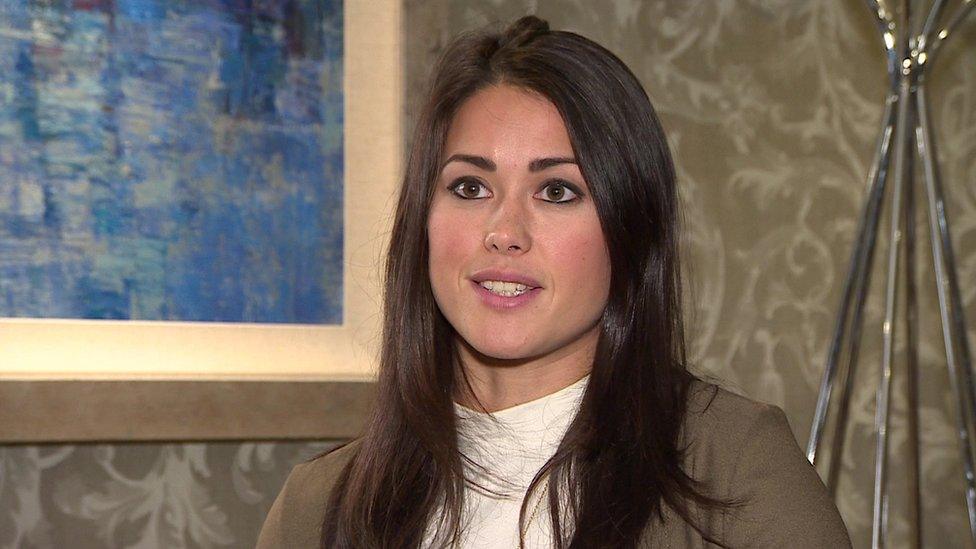
- Published15 September 2016
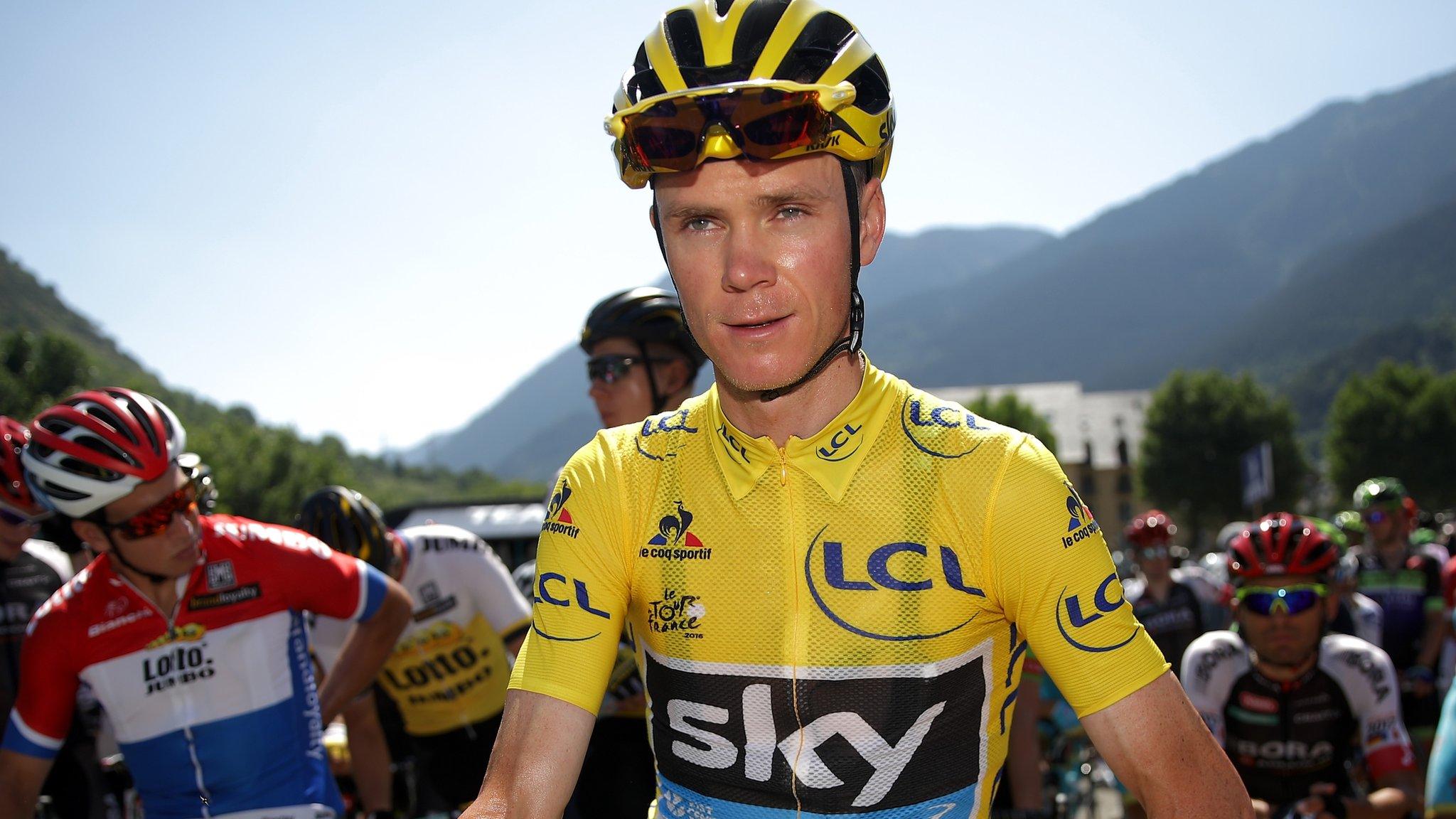
- Attribution
- Published15 September 2016

- Attribution
- Published15 September 2016
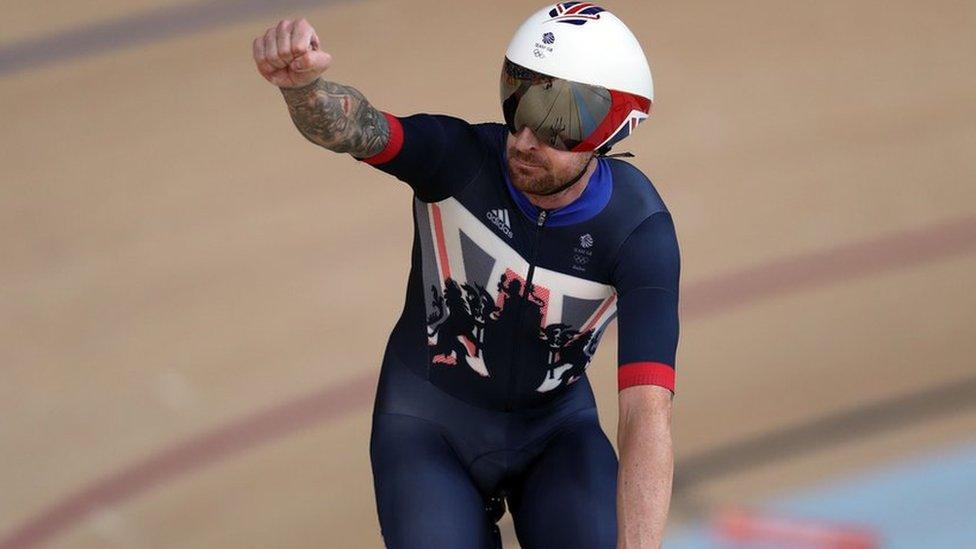
- Published13 August 2016
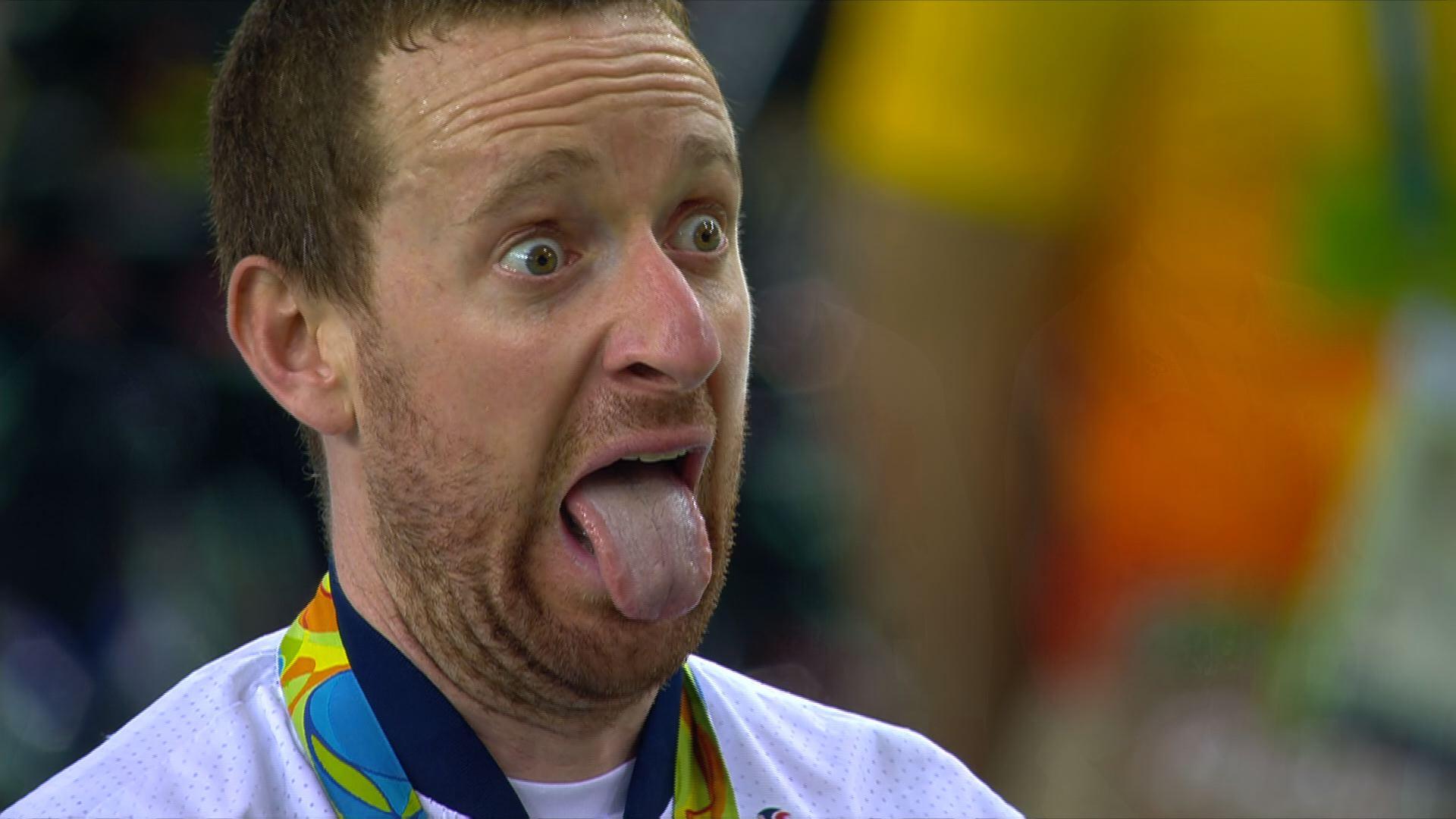
- Published24 July 2016
